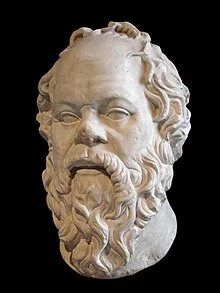That’s what I used to say from time to time in my philosophy classes over my forty-five-year university teaching career: “I never signed on to be a chicken-sexer.”
I would make that remark when students gave me occasion to do so by asking some such question as what they had to do to earn good grades, or by sharing some relevant observation during class discussions. We would then go on to discuss together the relation between education and grading.
Grades are assigned for the sake of certification. They evaluate performance and reward success. They reinforce hierarchies and assign people to ranks within them.
Grades are divisive and elitist. Grades produce snobs and snoots, and they feed egotism. They oppress those being graded, including those who are elevated to positions of presumed authority within the hierarchies that grading serves.
Education is provided for the sake of growth. It elicits thoughtful exertion and richly rewards effort. It works against hierarchization and any assigning of ranks.
Education is unifying and egalitarian. It creates gifted individuals and open communities, and it engenders humility. It brings out what is uniquely the best and most authentic in each of those being educated, elevating none above others.
Grades measure where things stand relative to one another along a given grade —that is, a given “slope or scale of measurement,” as the etymology of the noun grade attests. Education draws out absolutely, without regard to relative status and takes no measurements on any scales — as the etymology of the verb educate, “to draw out or forth,” attests.
Education bears witness against grading.
Socrates, an educator (bust in Louvre)
* * *
At its simplest, the tension between concrete doing and abstract labor is a matter of everyday experience. If we are teachers, we feel the tension between teaching well and grading or producing the necessary number of graduates.
— John Holloway
When my students used to ask me if they could get an “A” for effort, I always answered them in the affirmative. At least since I had a lightening insight on the St. Valentine’s Day weekend of 1982, as my wife and I sat on the beach at Mazatlán, Mexico, not only in fact but even more on principle I always graded solely for effort, and let success take care of its own ratty self.
However, I also saw that February weekend on the warm and sunny Mexican beach that effort begged for guidance, lest it only drag down whoever expended the effort. If one was heading in the wrong direction, then the more effort one put into one’s travel, the further away one would get from where, whether one knew it or not, one was trying to get. Without guidance, effort just drives one deeper into the wilderness, no matter how deeply one longs to find the promised land.
Especially after Mazatlan, the only way any students of mine could get an “A” was for effort, provided only that they cast that effort in the direction I pointed: for that highest grade, all a student in my classes had to do was suit up and show up — and be open to guidance. Whoever did that gave me in turn the great gift of being able to use grading in a way designed to subvert the whole damned grading process itself, making it, despite itself, serve education, not certification.
What more could a teacher ask for?
John Holloway, another educator
* * *
Here’s a little poem I wrote. Pace Bobby McFerrin, there is, however, no need for you to learn it note by note. Rest assured that there will be no test on it later.
After all, I run no school — nor ever will.
The Lightening
Lightning lightens. So does the enveloping darkness Of a sheer moonless night Bedecked with stars.
Though taking the burden off somebody’s shoulders Seems to lighten their load for the while, Showing them how to carry it themselves Does so truly — and forever.
And helping other’s tote their own loads By opening the ways before them To carry their burdens themselves Just lightens one’s own load the more.
Enlightenment all ways enlightens, As does always all true education. Schooling, however, never lightens the load: It always just burdens the more.
Bobby McFerrin, yet another educator (who will always be Jim Bobsel to me, a story i may tell in some future post)
NOTE TO READERS: On my Mazatlan experience as it pertains to grades and grading, see the third part of my book The Stream of Thought. I also discuss other aspects of this same experience and related matters in an old series of three very long posts that began on April 25, 2015 — a series called “‘Screen-Visons,’ Prophecy, and My Mazatlan Weekend”— on my previous WordPress website for this blog. So that interested readers of today’s post on this current website may read it, I will post the entire long essay as a single blogpost tomorrow, under that same title.
Refence for the epigraph for the second section of today’s post: John Holloway, Crack Capitalism (London & New York: Pluto Press, 2010), page 172.



